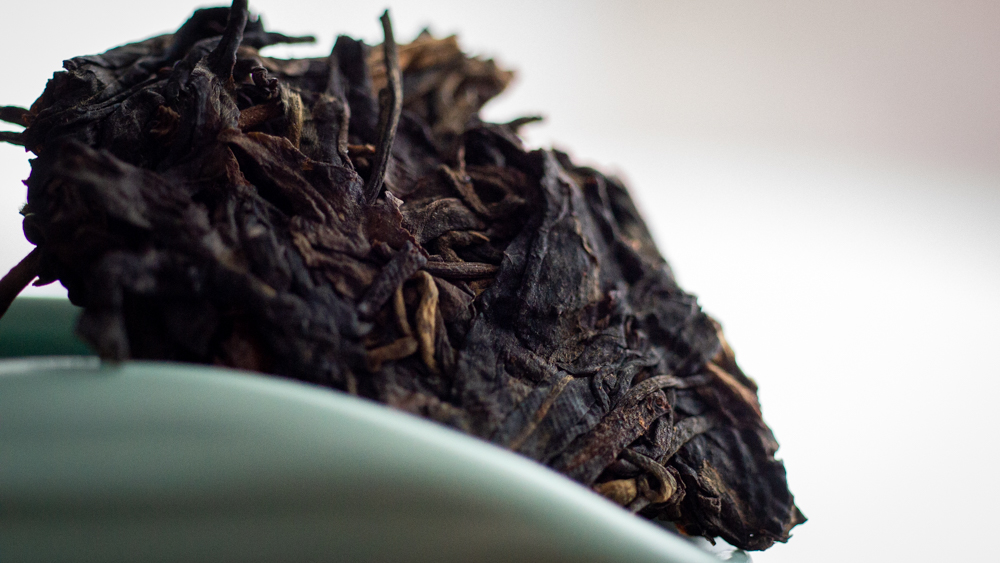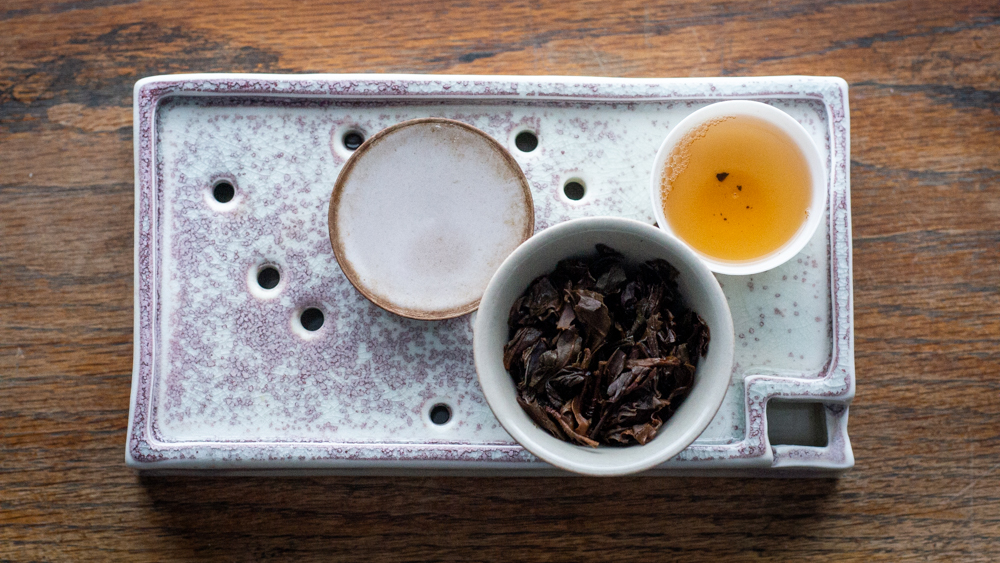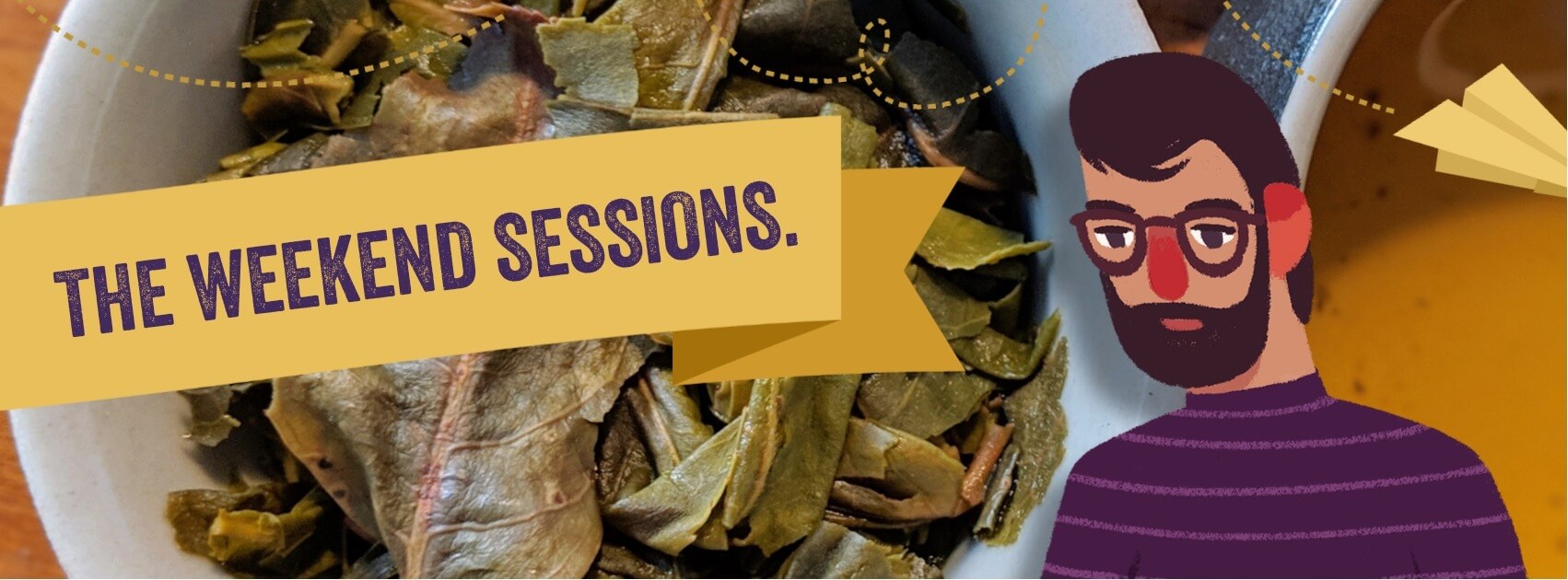When I started getting into tea I remember laughing when I saw people say “Just found this in my pumidor, bought five years ago then totally forgot I had it!” Well… I’m starting to understand. I’m pushing 150 samples and cakes for sheng alone now which isn’t as hectic as many others out there, but there is enough there that things can fall though the cracks. Todays tea is one of those. A small sample of Yunnan Sourcing’s 2002 Jiang Cheng “Ye Sheng Gu Cha” came to me though a tea friend last year and at the time I was very excited to try it, but then it got lost in the shuffle of all my samples and I forgot about it until I was digging through my pumidor this morning. Between then and now I’ve more or less forgotten what I read about this tea that got me excited, but instead of trying to find out I think I’m just going to go in blind and do some reading later.

Initial Impressions
I only have a small sample to judge, but what I have is very loosely compressed. I can easily pry it in half then what remains practically falls apart in my hands. The dry leaves have no aroma, but after being placed in my warmed gaiwan I start to get an earthy, dry dirt aroma. After a rinse they have a medium strength smell that is hard to describe. It’s warm and inviting, with a dark red fruit scent, but it’s more of an artificial scent. Think more scented markers than real fruit.
For this session I am using 3.85 grams of tea in my 55ml gaiwan, water just off the boil, and infusion times starting at five seconds and increasing by five each infusion.

Infusions 1-3
Infusion one is fairly watery, I think I probably could have discarded this as a second rinse. The flavour is faint but pleasing, with a soft, sweet, and woody taste. Infusion two drops the wateriness and sees a massive increase in damp woody flavour. A light astringency slowly builds in the aftertaste, along with some sweetness. Medicinal notes come in for the third infusion, with something that I can only describe as savory ash. Sort of a charred meat sort of thing. The up front taste is more or less straight forward. It has changed from steeping to steeping, but I mostly get one main flavour each steeping with not much behind it. The aftertaste is where things get interesting with different tastes moving forward and back in the mix for a few minutes.

Infusions 4-6
Infusion four goes into deep, juicy fruit territory with light camphor, then switches over to sharp and bright for the fifth and sixth. Orange and lemon come to mind for these infusions, it’s a bit (nicely) sour but there isn’t any bitterness at all. The tea is very smooth and goes down easy. I keep waiting for the mouthfeel to thicken up, but it remains a bit lackluster.

Infusions 7-16
From infusion seven on this puerh becomes much more straight forward. There are no more real changes, the tea has settled in to a woody tone with a bit of astringency and a heafty amount of sweetness and not much else. That’s not to say it’s a bad thing – the taste is lovely, just the ups and downs from earlier have levelled out. Flavour production starts to slowly decline at the eleventh steeping and I throw in the towel at the sixteenth.
Final Thoughts
I think that Yunnan Sourcing’s descriptions hit the mark. Jiang Cheng “Ye Sheng Gu Cha” is interesting, but easy going and not distracting. This feels to me like it would be a good calming, meditative sheng, if you’re into that sort of thing. For me, this is the sort of tea that I would love to split a cake of with somebody but wouldn’t jump on a full one because I just don’t see myself craving this flavour profile enough to justify it. At $0.38 USD/gram though I do think it’s a good value tea and definitely worth trying out if this seems up your alley.

